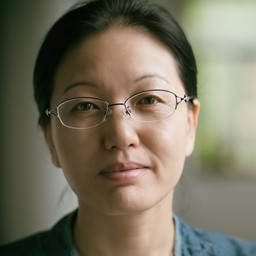Please note that the order in which the Editors appear on this page is alphabetical, and follows the structure of the editorial board presented on the MDPI
website under information for editors: editorial board responsibilities.
 Prof. Dr. Valentin Goranko
Prof. Dr. Valentin Goranko
 Prof. Dr. Valentin Goranko
Prof. Dr. Valentin Goranko
Website
Editor-in-Chief
Logic and Theoretical Philosophy, Stockholm University, Stockholm, Sweden
Interests: mathematical logic; logic in artificial intelligence; logics of multi-agent systems; logic and game theory; logic in computer science
 Prof. Dr. Jean Baratgin
Prof. Dr. Jean Baratgin
 Prof. Dr. Jean Baratgin
Prof. Dr. Jean Baratgin
Website
Editorial Board Member
Lab Cognit Humaine & Artificielle CHArt, Université Paris 8, 93526 Saint-Denis, France
Interests: rationality; uncertain reasoning; judgement; decision-making; belief revision; cognition; human-machine interaction; experimental research
Special Issues, Collections and Topics in MDPI journals
 Prof. Dr. Jean-Yves Beziau
Prof. Dr. Jean-Yves Beziau
 Prof. Dr. Jean-Yves Beziau
Prof. Dr. Jean-Yves Beziau
Website
Editorial Board Member
Department of Philosophy, Federal University of Rio de Janeiro, 20051-070 Rio de Janeiro, Brazil
Interests: universal logic; square of opposition; history and philosophy of logic; truth; critical thinking; semiotics; aesthetics; theology; imagination, emotion, understanding
Special Issues, Collections and Topics in MDPI journals
 Dr. Daniele Chiffi
Dr. Daniele Chiffi
 Dr. Daniele Chiffi
Dr. Daniele Chiffi
Website
Editorial Board Member
Department of Architecture and Urban Studies (DAStU), Polytechnic University of Milan, 20133 Milan, Italy
Interests: non-classical logics; philosophical logic; philosophy of science; philosophy of medicine; (formal) epistemology and pragmatics
 Prof. Dr. Agata Ciabattoni
Prof. Dr. Agata Ciabattoni
 Prof. Dr. Agata Ciabattoni
Prof. Dr. Agata Ciabattoni
Website
Editorial Board Member
Institute of Logic and Computation, Technische Universität Wien, A-1040 Vienna, Austria
Interests: non-classical logics; proof theory; logic for artificial intelligence
 Prof. Dr. Marcelo Esteban Coniglio
Prof. Dr. Marcelo Esteban Coniglio
 Prof. Dr. Marcelo Esteban Coniglio
Prof. Dr. Marcelo Esteban Coniglio
Website
Editorial Board Member
Institute of Philosophy and the Humanities, University of Campinas, Campinas 13083-970, Brazil
Interests: non-classical logics; paraconsistent logics; non-deterministic semantics; algebraic semantics; combination of logics
 Prof. Dr. Willem Conradie
Prof. Dr. Willem Conradie
 Prof. Dr. Willem Conradie
Prof. Dr. Willem Conradie
Website
Editorial Board Member
School of Mathematics, University of the Witwatersrand, Johannesburg WITS 2050, South Africa
Interests: modal logic
Dr. Maria Eugenia Cornejo Piñero
Dr. Maria Eugenia Cornejo Piñero
Website
Editorial Board Member
Department of Mathematics, Cadiz University, 11002 Cadiz, Spain
Interests: fuzzy sets; fuzzy logic; formal concept analysis; rough sets; mathematical tools in computer science
 Prof. Dr. Harrie de Swart
Prof. Dr. Harrie de Swart
 Prof. Dr. Harrie de Swart
Prof. Dr. Harrie de Swart
Website
Editorial Board Member
Department of Philosophy, Tilburg School of Humanities and Digital Sciences, Tilburg University, 5037 AB Tilburg, The Netherlands
Interests: logic; axiomatization; arithmetic; social choice theory; voting; elections; philosophy of language
 Prof. Dr. Răzvan Diaconescu
Prof. Dr. Răzvan Diaconescu
 Prof. Dr. Răzvan Diaconescu
Prof. Dr. Răzvan Diaconescu
Website
Editorial Board Member
Simion Stoilow Institute of Mathematics of the Romanian Academy, 010702 Bucharest, Romania
Interests: model theory and category theory as such and with applications to computing; experimental mathematics; formal specification and verification
Special Issues, Collections and Topics in MDPI journals
 Dr. Antonin Dvorak
Dr. Antonin Dvorak
 Dr. Antonin Dvorak
Dr. Antonin Dvorak
Website
Editorial Board Member
Institute for Research and Applications of Fuzzy Modeling, University of Ostrava, 701 03 Ostrava, Czech Republic
Interests: mathematical fuzzy logic; fuzzy inference systems; generalized and fuzzy quantifiers; aggregation operators on ordered structures
Special Issues, Collections and Topics in MDPI journals
Website
Editorial Board Member
Computer Science Unit, Indian Statistical Institute, Chennai 600 029, India
Interests: games, strategies and logics; knowledge and belief; social choices; social cognition; reasoning in individuals with ASD
 Dr. Patrick Girard
Dr. Patrick Girard
 Dr. Patrick Girard
Dr. Patrick Girard
Website
Editorial Board Member
Faculty of Arts, University of Auckland, Auckland 1010, New Zealand
Interests: philosophical logic; non-classical logic; modal logic; metaphysics
 Prof. Dr. Wesley H. Holliday
Prof. Dr. Wesley H. Holliday
 Prof. Dr. Wesley H. Holliday
Prof. Dr. Wesley H. Holliday
Website
Editorial Board Member
Department of Philosophy, University of California, Berkeley, CA 94720-2390, USA
Interests: formal philosophy and logic, especially modal logic; intuitionistic logic; epistemic logic and epistemology; logic and natural language; logic and probability; logic and social choice theory
 Prof. Dr. Barteld Kooi
Prof. Dr. Barteld Kooi
 Prof. Dr. Barteld Kooi
Prof. Dr. Barteld Kooi
Website
Editorial Board Member
Faculty of Philosophy, University of Groningen, 9712 GL Groningen, The Netherlands
Interests: logic and argumentation theory
 Prof. Dr. Beishui Liao
Prof. Dr. Beishui Liao
 Prof. Dr. Beishui Liao
Prof. Dr. Beishui Liao
Website
Editorial Board Member
School of Philosophy, West Zijingang Campus, Zhejiang University, Hangzhou 310058, China
Interests: logic in AI; explainable AI; ethical and legal AI
 Prof. Dr. Fenrong Liu
Prof. Dr. Fenrong Liu
 Prof. Dr. Fenrong Liu
Prof. Dr. Fenrong Liu
Website
Editorial Board Member
Department of Philosophy, Tsinghua University, Beijing 100084, China
Interests: logics for rational agency; preference dynamics; logic for social networks
 Prof. Dr. Lorenzo Magnani
Prof. Dr. Lorenzo Magnani
 Prof. Dr. Lorenzo Magnani
Prof. Dr. Lorenzo Magnani
Website
Editorial Board Member
Philosophy Section, and Computational Philosophy Laboratory, Department of Humanities, University of Pavia, 27100 Pavia, Italy
Interests: epistemology; science, technology, and human values; abductive reasoning; critical thinking; non-standard logics; philosophy of medicine; history and philosophy of geometry; violence, morality and religion
 Prof. Dr. Joao Marcos
Prof. Dr. Joao Marcos
 Prof. Dr. Joao Marcos
Prof. Dr. Joao Marcos
Website
Editorial Board Member
Department of Informatics and Applied Mathematics, Federal University of Rio Grande do Norte (UFRN), Natal 59072-970, Brazil
Interests: reasoning; deductive reasoning; logical reasoning; formal semantics; logic; formal logic; semantics; theory of computation; language; concepts
 Dr. Ira Noveck
Dr. Ira Noveck
 Dr. Ira Noveck
Dr. Ira Noveck
Website
Editorial Board Member
Laboratoire de Linguistique Formelle, Centre National de la Recherche Scientifique (CNRS), 75013 Paris, France
Interests: logical connectives; experimental investigations of discourse connectives
Website
Editorial Board Member
Institute of Logic and Computation, Technische Universität Wien, 1040 Vienna, Austria
Interests: AI; knowledge representation; reasoning; logic
 Dr. Elaine Pimentel
Dr. Elaine Pimentel
 Dr. Elaine Pimentel
Dr. Elaine Pimentel
Website
Editorial Board Member
Computer Science Department, University College London, London WC1E 6BT, UK
Interests: proof theory; concurrency theory; ecumenical systems; game semantics; logical frameworks; linear logic; modal logics; intersection types; lambda-calculus
 Dr. Giuseppe Primiero
Dr. Giuseppe Primiero
 Dr. Giuseppe Primiero
Dr. Giuseppe Primiero
Website
Editorial Board Member
Department of Philosophy, University of Milan, Milan, Italy
Interests: logic in computer science; logic in artificial intelligence; non-classical logics; philosophy of computer science
 Dr. Mehrnoosh Sadrzadeh
Dr. Mehrnoosh Sadrzadeh
 Dr. Mehrnoosh Sadrzadeh
Dr. Mehrnoosh Sadrzadeh
Website
Editorial Board Member
PPLV Group, Department of Computer Science, University College London, London WC1E 6BT, UK
Interests: theoretical computer science; logic; category theory; computational linguistic; artificial intelligence
Website
Editorial Board Member
Department of Cognitive Science and Mathematical Modelling, University of Information Technology and Management in Rzeszow, 35-225 Rzeszow, Poland
Interests: non-classical logic; decision-making; history of logic; cognition; unconventional computing; artificial intelligence
 Prof. Dr. Cristina Sernadas
Prof. Dr. Cristina Sernadas
 Prof. Dr. Cristina Sernadas
Prof. Dr. Cristina Sernadas
Website
Editorial Board Member
Department of Mathematics, Instituto Superior Técnico, Universidade de Lisboa, 1049-001 Lisboa, Portugal
Interests: logics and theories and their combination (e.g., meet, importing, fibring); properties of logics and their preservation, including decidability; deductive systems; evidence, probability, and quantum logics
Special Issues, Collections and Topics in MDPI journals
 Prof. Dr. Alexander Šostak
Prof. Dr. Alexander Šostak
 Prof. Dr. Alexander Šostak
Prof. Dr. Alexander Šostak
Website
Editorial Board Member
Institute of Mathematics and CS, University of Latvia, 1459 Riga, Latvia
Interests: general topology; category theory; L-valued topological and algebraic structures; fuzzy sets; applications of fuzzy sets and fuzzy structures; many-valued logics
Special Issues, Collections and Topics in MDPI journals
 Dr. Alwen Tiu
Dr. Alwen Tiu
 Dr. Alwen Tiu
Dr. Alwen Tiu
Website
Editorial Board Member
College of Engineering & Computer Science, The Australian National University, Canberra, ACT 2600, Australia
Interests: formal methods; computational logic; automated theorem proving and computer security; modelling aspects of computational systems
 Prof. Dr. Ivan Varzinczak
Prof. Dr. Ivan Varzinczak
 Prof. Dr. Ivan Varzinczak
Prof. Dr. Ivan Varzinczak
Website
Editorial Board Member
Laboratoire d'Informatique Avancée de Saint-Denis (LIASD), Université Paris 8, Paris, France
Interests: logic-based knowledge representation and reasoning in artificial intelligence; non-classical logics, modal logic, description logics, formal ontologies; defeasible reasoning, belief change, reasoning about actions; automated theorem proving




























